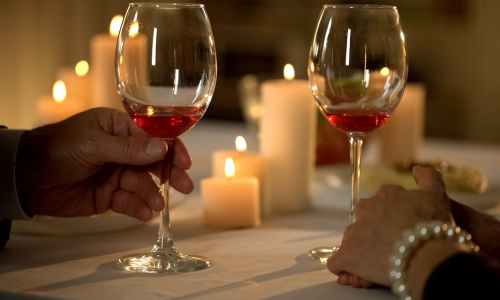Losing love unexpectedly or through no fault of your own can be heart shattering. The experience makes us vulnerable, wary of opening up and disbelieving of the possibility that both love and life can ever be as good again. Here at Berkeley International we understand this and are grateful when clients are open with us about what they’ve previously been through. The most important advice we want to give you is about how crucial it is to take your time to heal, but also to not forsake a happy future in the process.
GIVING YOURSELF TIME
Rebounds after the most minor breakups are a bad idea, after a significant loss there is even more reason to avoid them. Time to acknowledge what you had is necessary, time to understand why you no longer have it, who you are without it, and who you want to be in the future, are all absolutely natural phases and need to be respected. Before you even consider moving on, into both fun and serious relationships, you need to be sure of why you’re doing it. If there is any ounce of negativity in your reasoning, go back to the drawing board and deal with that first.
SETTLING VS. ASKING FOR TOO MUCH
When people lose love, a belief that it will never be as good again can kick in. Occasionally, we feel lucky that we have experienced love even once, in a world of singletons, broken marriages and unhealthy relationships. This can lead us to accept situations that aren’t true to what we want or deserve. On the reverse side, it can also make us spend an inordinate amount of time trying to replicate what we’ve lost, pretending that it was 100% perfect, 100% of the time. In both scenarios, we have to take a step back to be fair to ourselves and the next partner to enter into our lives. Balance in all things is essential and relationships are no different.
MAKING PLANS
Losing someone can highlight and make abundantly clear how unpredictable life is. Having this demonstrated to you may lead you to believe that making any sort of plans for the future is futile. This shouldn’t be the case. Plans are only ever made in the faith and hope that they’ll come to fruition as expected. From what to make for dinner, to where you’re going to be married next year, we plan with the desire that it will work out. This is what we do as humans, its part of our nature and how we make order of lives that can feel vast and out of control. Don’t be afraid to make new plans with a partner, and even if you are, do it anyway.
GIVE AS MUCH AS YOU CAN
It’s natural to want to hold back, to protect ourselves from the possibility of being hurt. When this happens we stop sharing as much, we stop giving as much, we keep people at arms length and pretend that this is the height of our capability. Be careful to distinguish between when you’re truly at your capacity for love, and when you’re simply being ruled by anxiety. Try not to reject what others want to give you, for fear that you may need or rely on it too much and end up disappointed. At some point you’ll need to learn to have faith again, so start slowly but make sure to start.
ACCEPT THAT IT MAY END
Falling in love after trauma unfortunately does not guarantee that second, third or fourth time around it will last forever. What this shouldn’t mean is that you never date again or that you do but are sad and defeatist about it. This is the time for you to learn to appreciate each day as it comes. Knowing that nothing is certain can make you mindful of how necessary it is to go with the flow, to not focus heavily on what may happen, but on what is happening now. If you are looking for love and don't know where to start visit our how we work [https://www.berkeley-international.com/how-we-work] page. Or for more information on how we can help you fill in our discrete enquiry form [https://www.berkeley-international.com/enquire/].





.png)
.png)